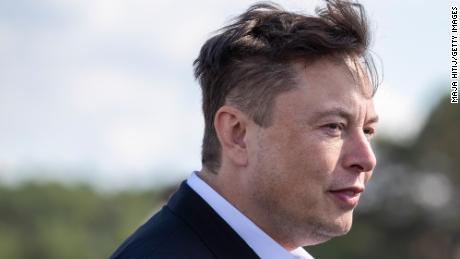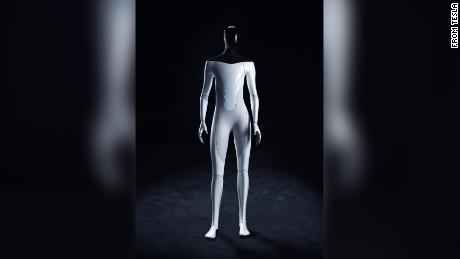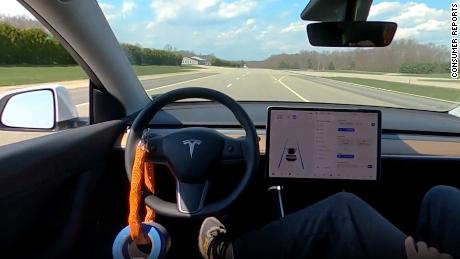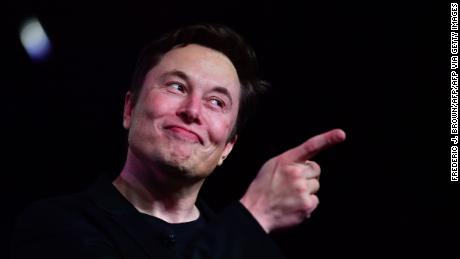New York (CNN Business)Tesla's reign as the king of electric car makers could be in jeopardy.
Traditional automakers are planning big pushes into electric vehicle production, none more so than Volkswagen.
At first blush it may not seem like Tesla could lose its dominance.
It has sold nearly 500,000 cars worldwide, which accounts for about 20% of all the battery-only electric vehicles on the road today, according to an estimate from Navigant Research.
The company is finally turning a profit and meeting its production goals.
At 250,000 units in the United States, Tesla has about double the amount of Nissan Leafs, the No. 2 electric car in America. Nissan has sold more than 125,000 Leafs since its late 2010 debut GM's all-electric offering, the Chevy Bolt, has only sold about 36,000 cars since it debuted in 2016.
Volkswagen has a plan to dwarf those numbers.
CEO Herbert Diess recently told Automotive News that VW intends to build and sell 50 million all-electric vehicles in coming years.
He said VW will be able to price its cars less than comparable Teslas by taking advantage of economies of scale.
Diess did not give a time frame and it will obviously will take years, if not decades, to reach that goal.
Volkswagen sold 10.7 million vehicles last year, almost all of them gas or diesel powered.
But VW has already announced plans to roll out a wide selection of all-electric cars. The Volkswagen I.D. line is set to debut in 2020. The Audi E-Tron should hit US showrooms in the spring. Other Volkswagen brands, including Porsche, are planning their own electric models as well.
Others are pushing hard, too.
Ford has committed to spend $11 billion to refocus the company on new products such as self-driving and electric vehicles. GM is gearing up its plans as well.
Tesla said it's not worried about the increased competition because it will help its overall goal of transitioning cars globally from gas and diesel to electric.
"Every compelling electric vehicle on the road is a win for Tesla," a company spokesman said.
By 2026, Navigant expects more than 30 million battery-only electric vehicles to be on the road worldwide, compared with about 2.6 million today. That's far too much production for Tesla to handle.
Half of those vehicles are expected to be sold in the Asia-Pacific region, mostly in China, where Tesla is just now starting plans for its first Asian factory.
Sam Abuelsamid, a transportation analyst with Navigant, said he expects Tesla's foothold in the market and its reputation among electric car buyers should help it weather the flood of new competition from established automakers.
But he said the Volkswagens and General Motors of the world come with size and long track records of building cars.
"One area where they have a bit of an advantage is the ability to work with their supply chain to get high quality components, and a supply of raw materials such as lithium and cobalt," he said. "They ... already have factories in place around the world."
The deep pockets of established automakers also gives them an advantage.
For much of 2018, Tesla CEO Elon Musk had to fend off worries about an imminent cash crunch. Those concerns seem to have been allayed after the company finally hit production targets for its Model 3 sedan in October. He says the company's newfound profitability will allow it to meet its debt obligations.
But it's clear that the far larger and richer established automakers have resources that Tesla can't touch.
"The other companies have a significant amount of cash reserves to protect them. And they have other products and a wider portfolio," said Abhay Vadhavkar, director of manufacturing, engineering and technology for the Center for Automotive Research, a Michigan think tank.
In the end, the biggest barrier to the established automakers making a major push into electric vehicles could be that they might not be as profitable for the automakers' dealers, Abuelsamid said.
"Most dealers make little or no profit on selling new cars. They make most of profit on used car sales and warranty service," he said. The presumption among dealers is the electric vehicles won't require as much service," he said.
With advances being made in electric cars, most buyers won't want a used one.






















